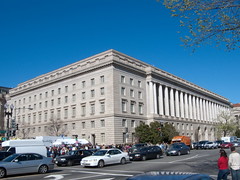I had done a lot of improvements on it to increase its value for sale and had hopes of claiming it on my taxes for 2013. Is there some sort of estimated formula I could use to estimate how much I could expect to pay in taxes?
If this had been your primary residence, we would be happy to tell you that you don't owe any tax. In fact, if you had simply lived in the home for two of the last five years, or through 2009 if you sold it in 2012, you still wouldn't owe any tax as long as your profit was less than $250,000 if you're single or $500,000 if you're married.
However, that doesn't seem to be the case here. You didn't supply all of the information we need to assess your situation, but we can make some educated guesses about what has happened and point you in the right direction.
Let's start with how profit and the cost basis are calculated. When you sell a home, the IRS wants to know not only how much you paid for the property, but what capital improvements you made to the property (adding a room or replacing the roof, as opposed to painting a bathroom), and how much it cost to sell. If you add up the costs of purchase, sale (including the commission) and capital improvements, you will get your cost basis. The profit is calculated by subtracting the cost basis from the total sales price.
| Internal Revenue Service (IRS) (Photo credit: cliff1066™) |
Even though you didn't live in the home, you wouldn't owe any tax. Now, if the numbers don't line up that neatly, and you have $100,000 in profit, you would pay long-term capital gains tax at your current rate, which is probably 20 percent. So you would owe $20,000 in federal capital gains taxes and whatever extra in state tax.
If you sold in 2013, and your adjusted gross income (AGI) topped $200,000 (if single) or $250,000 (if married), you might owe an extra 3.8 percent on the $100,000, or $3,800, for the Medicare tax. (For FAQs on the extra Medicare tax, go to irs.gov/businesses/small/article/0,,id=258201,00.html.)
If the house was a rental property (which you didn't indicate, although you said you hadn't lived there as a primary residence for five years), you may have taken depreciation. When you sell the property, unless you are doing a tax-free exchange for another investment property, you will owe recapture on the depreciation you have taken at a rate of 25 percent. So if you took $100,000 in depreciation, you might owe $25,000 in taxes on top of any profit.
Whether you have a mortgage doesn't much matter when it comes to calculating your cost basis and any profit. What matters is whether you have, on a net basis, made money or lost money.
For more details, you'll want to visit the IRS website and download these free publications: IRS Publication 523 "Selling Your Home," Tax Topic 409 "Capital Gains and Losses," and, if applicable, IRS Publication 527 "Residential Rental Property."
Distributed by Tribune Media Services Inc.
Taken from: http://www.northjersey.com/realestate/166676816_Real_Estate_Matters__Tax_consequences_of_selling_property_differ_depending_on_occupancy_following_a_home_sale.html






No comments:
Post a Comment